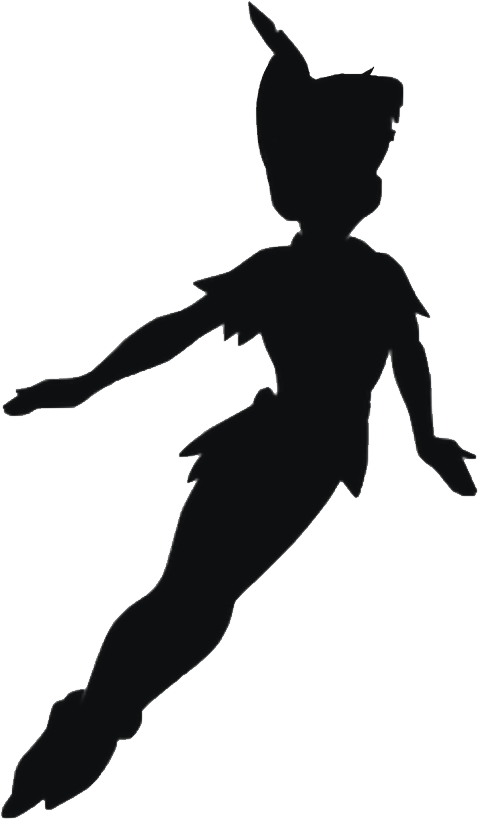
This image has format transparent PNG with resolution 478x819.
You can download this image in best resolution from this page and use it for design and web design.
Peter Pan PNG with transparent background you can download for free, just click on download button.
Peter Pan is a fictional character created by Scottish novelist and playwright J. M. Barrie. A free-spirited and mischievous young boy who can fly and never grows up, Peter Pan spends his never-ending childhood having adventures on the mythical island of Neverland as the leader of the Lost Boys, interacting with fairies, pirates, mermaids, Native Americans, and occasionally ordinary children from the world outside Neverland.
Peter Pan has become a cultural icon symbolizing youthful innocence and escapism. In addition to two distinct works by Barrie, the character has been featured in a variety of media and merchandise, both adapting and expanding on Barrie's works. These include the 1924 silent film, 1953 Disney animated film, a 2003 dramatic/live-action film, a television series and many other works.
Peter Pan first appeared as a character in Barrie's The Little White Bird (1902), an adult novel. In the chapters 13-18 entitled Peter Pan in Kensington Gardens, Peter is a seven-day old baby and has flown from his nursery to Kensington Gardens in London, where the fairies and birds taught him to fly. He is described as a "betwixt-and-between" a boy and a bird. Following the success of the 1904 play, Barrie's publishers, Hodder and Stoughton, extracted these chapters of The Little White Bird and published them in 1906 under the title Peter Pan in Kensington Gardens, with the addition of illustrations by Arthur Rackham.
He returned to the character of Peter Pan as the centre of his stage play entitled Peter Pan, or The Boy Who Wouldn't Grow Up, which premiered on 27 December 1904 in London. Barrie later adapted and expanded the play's storyline as a novel, published in 1911 as Peter and Wendy.
Barrie never described Peter's appearance in detail, even in his novel, leaving it to the imagination of the reader and the interpretation of anyone adapting the character. In the play, Peter's outfit is made of autumn leaves and cobwebs. His name and playing the flute or pipes suggest the mythological character Pan. Barrie mentions in Peter and Wendy that Peter Pan still had all his "first teeth". He describes him as a beautiful boy with a beautiful smile, "clad in skeleton leaves and the juices that flow from trees".
Traditionally, the character has been played on stage by a petite adult woman. In the original productions in the UK, Peter Pan's costume was a reddish tunic and dark green tights, such as that worn by Nina Boucicault in 1904. This costume is exhibited in Barrie's Birthplace. The similar costume worn by Pauline Chase (who played the role from 1906 to 1913) is displayed in the Museum of London. Early editions of adaptations of the story also depict a red costume but a green costume (whether or not made of leaves) becomes more usual from the 1920s, and more so later after the release of Disney's animated movie.
In the Disney films, Peter wears an outfit that consists of a short-sleeved green tunic and tights apparently made of cloth, and a cap with a red feather in it. He has pointed elf-like ears, brown eyes and his hair is red.
In Hook (1991), the character is played as an adult by Robin Williams, with blue eyes and dark brown hair; in flashbacks to him in his youth, his hair is light brown. His ears appear pointed only when he is Peter Pan, not as Peter Banning. His Pan attire resembles the Disney outfit (minus the cap).
In the live-action 2003 Peter Pan film, he is portrayed by Jeremy Sumpter,with blond hair, blue eyes,bare feet and a costume made of leaves and vines.
Peter is an exaggerated stereotype of a boastful and careless boy. He claims greatness, even when such claims are questionable (such as congratulating himself when Wendy re-attaches his shadow). In the play and book, Peter symbolises the selfishness of childhood, and is portrayed as being forgetful and self-centred.
Peter has a nonchalant, devil-may-care attitude, and is fearlessly cocky when it comes to putting himself in danger. Barrie writes that when Peter thought he was going to die on Marooners' Rock, he felt scared, yet he felt only one shudder. With this blithe attitude, he says, "To die will be an awfully big adventure". In the play, the unseen and unnamed narrator ponders what might have been if Peter had stayed with Wendy, so that his cry might have become, "To live would be an awfully big adventure!", "but he can never quite get the hang of it".
In this page you can download free PNG images: Peter Pan PNG images free download